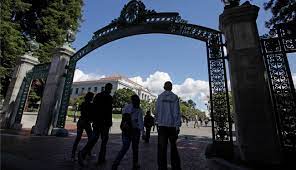In a paper published in 2015, scholars from Tsinghua and Stanford University said students with hukou in the poorest fifth of counties were seven times less likely than their urban counterparts to get a university place and 14 times less likely to attend an elite one. In those counties, the odds were even more stacked against girls and ethnic minorities. “It is really, really clear that it is now much, much harder for a poor, rural kid to get into a good university,” says Scott Rozelle of Stanford. He estimates that around 75% of urban children go to university compared with 15% of rural ones. Nearly 80% of children under 14 have rural hukou. But writing in 2017, Wu Xiaogang, now of NYU Shanghai, a Sino-American joint-venture university, said less than 17% of students in elite universities had rural household-registration before taking up their places. The pattern has not changed since then, says Mr Wu. “If anything, it may be even worse now.”
清华大学和斯坦福大学的学者在2015年联合发表的一篇论文中表示,相较于拥有城市户口的学生,户口在中国五分之一最贫穷县的学生考入大学的概率要低7倍,考入顶尖大学的概率要低14倍。而在这些贫困县中,女孩和少数民族的胜算更低。斯坦福大学的斯科特·罗泽尔表示:“显而易见,一个贫穷的农村孩子愈加难以考上好大学。”罗泽尔估计,能考上大学的城市孩子约有75%,而农村孩子只有15%。近80%的14岁以下儿童有农村户口。但目前就职于中美合资大学——纽约大学上海分校的吴晓刚在2017年写道,顶级大学中有不到17%的的学生在入学之前是农村户口。吴晓刚表示,这样的模式从那时起就没有变过,“如果非要说出点不同的话,那就是当前的情况可能更糟。”

That is because inequalities in society are becoming more pronounced. The children of wealthy families have access to the best schools as well as to after-school tutoring and extra-curricular activities. Their parents can afford homes in good catchment areas. China offers nine years of free, compulsory education, but fees are levied at state-run senior secondary schools. In poor areas, charges can amount to more than 80% of net income per person, one of the highest such burdens in the world. Some students prefer to start work: a typical unskilled factory hand can earn in a month what a poor farmer earns in a year.
这是因为社会上的不平等越来越明显。出身富贵的孩子可以上最好的学校,也可以参加课外辅导和课外活动。他们的父母能负担得起好的学区房。中国虽然提供免费的九年义务教育,但公立高中是收费的。学费可能达到贫困地区人均纯收入的80%以上,这样高的负担堪列世界之最。部分学生更倾向于开始工作:一个无特殊技能的普通工厂工人的月薪,相当于一个贫穷农民一年挣的钱。
Since its relaunch in 1977, universities mostly have relied on test scores for admission. In 2003 China began to allow some universities to recruit students with special talents such as in sports and arts. Again, the wealthy have been the main beneficiaries: only they can afford to pay for the training needed.
自1977年高考恢复以来,大学大多依靠考试成绩进行录取。2003年,中国开始允许部分高校招收体育和艺术等方面的特长生。富家子弟再次成为新政策的主要受益者:只有他们才有能力支付所需的培训费用。
译文由可可原创,仅供学习交流使用,未经许可请勿转载。












